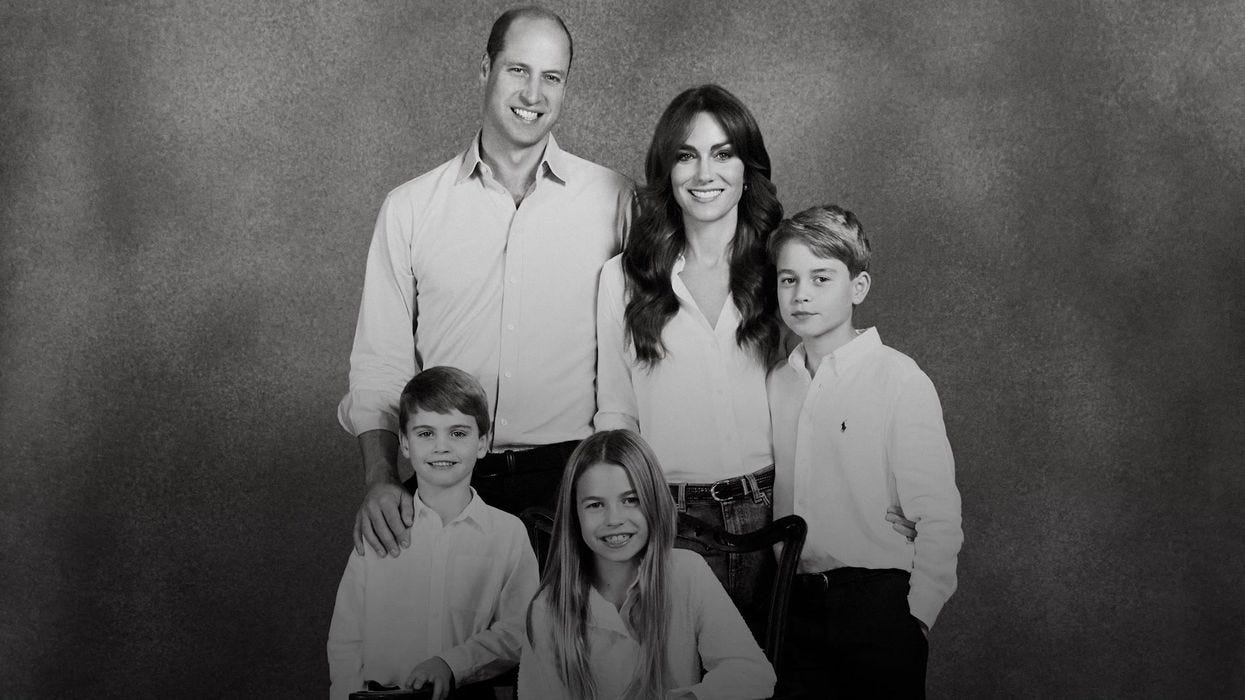Borkowski Media Trends: Harry vs MGN, Royal Xmas Card & Golden Globes
PLUS Columbia Road carol services cancelled
A Sussex Success
Prince Harry emerged at least partially victorious this morning as the High Court ruled in his favour regarding accusations of phone hacking by Mirror Group Newspapers between 2003 and 2009. The decision, which declared that 15 of 33 selected articles about the Prince were “the product of phone hacking…or the product of other unlawful information gathering,” will raise serious issues for the title and its famously anti-Sussex former Mirror editor, Piers Morgan who it concludes knew of the nefarious tactics being used. The Mirror Group has been quick to respond with a forthright apology for “historical wrongdoing” and a commitment to “have taken full responsibility and paid appropriate compensation.”
Could the verdict help to drum up some public sympathy for the formerly royal pair as audiences begin to tire of the Hollywood pity party? Prince Harry’s rather dramatic statement, read by his lawyer, is unlikely to win over any already cynical Brits: “I’ve been told that slaying dragons will get you burned… it’s a worthwhile price to pay.” Additionally Justice Fancourt’s assertation that “there was a tendency for the duke in his evidence to assume that everything published was the product of voicemail interception…but, phone hacking was not the only journalistic tool at the time and his claims in relation to the other 18 articles did not stand up to careful analysis,” represents only a half baked win for this dragon slayer. However, what may become lost in the initial Sussex kerfuffle around this story are the stark echoes of the dark days of the Leveson Inquiry, which will undoubtedly come back to haunt some of Britain’s most-read newspapers.
The Royal Finger
In the world of public relations, Christmas cards have long been a secret weapon - a subtle yet powerful tool to quickly shift the image of the sender, often without raising eyebrows. From David Cameron’s schmaltzy family photos to Gordon Brown’s Gruffalo-inspired designs, Christmas cards have the uncanny ability to soften edges and humanise even the most hardened politician. The Duke and Duchess of Wales have been no exception to this rule, often opting for beautiful family shots from their own back garden. Their 2023 Christmas card, however, took a decidedly different turn.
Captured by photographer Josh Sinner, the black-and-white image is a pastiche of 1990s American family portrait, replete with outdated photo paper backgrounds and stiff, almost robotic poses - a stark departure from the previous year’s casual Petra pic.
Of course, social media went ablaze within moments of its release, but curiously, not just for its terrible awkwardness. No, users zooming in on Prince Louis’ hand are convinced a Photoshop fail has left him with one less finger, a potential inverse Anne Boleyn syndrome.
The couple haven’t commented, but a source told Us Weekly they’re both “embarrassed” that everyone thinks it was edited and that they “were as shocked as everyone else” by the public’s reaction.
The photo has landed at a critical point for the couple. Right as Harry and Meghan’s star has reportedly fallen to new lows, you’d have thought an overly sentimental family pic by Kate’s mum would have sealed the deal. But no, in this never-ending soap opera, Wills and Kates’s Photoshop fail may have just kept the door ajar for another season of drama next year.
Golden Globes Need a Golden Girl
The nominations for the 2024 Golden Globes were announced this week, with summer hits Barbie and Oppenheimer, and classic awards fare like Bernstein-biopic Maestro, leading the way. There was little in the way of surprises. In the aftermath of the 2021 scandal that saw the ceremony cancelled after several actors and studios decided to boycott the Hollywood Foreign Press Association, the ceremony’s awarding body, the Globes have sought to cast off their somewhat trashy reputation. Nominations for actors like Alma Pöysti, for her performance in the small-scale Finnish hit Fallen Leaves, are a testament to how the ceremony has tried to rebrand itself. We are now in an era where arthouse legend Jonathan Glazer could win a Golden Globe, and the memory of Pia Zadora is a mere twinkle in Hollywood’s eye.
But the nominations were notable for one thing – the introduction of a “Cinematic and Box Office Achievement Category”, an award to celebrate films that made over 100 million dollars at the US box office, in recognition of “how movie theatres are kept alive.” This is not a new idea. In 2018, the Academy Awards proposed an “Outstanding Achievement in Popular Film” category, ostensibly to give an award to Marvel Studios. The plan was killed off but revived three years later in the form of a Twitter poll, announced during the ceremony itself, for the ‘Oscars Cheer Moment’. The award went to ‘The Flash Enters the Speed Force’ from Zack Snyder’s Justice League, in a decision plagued by accusations of manipulation through the use of bots.
In a year when the worldwide box office finally and definitively bounced back from its post-Covid slump, it’s understandable why the Globes decided to introduce the category. Yet when the films that drove that revival dominated the regular categories, it seems strangely redundant – the long-term argument against a Popular Film category is that it pits notions of art and success as functional opposites, an idea directly contradicted by the enormous critical and commercial popularity of Barbie and Oppenheimer. Some of the other choices are questionable. The latest Mission Impossible film made a loss, and while Guardians of the Galaxy 3 was a hit, Marvel is no longer reaching its once untouchable heights – they are not films that would necessarily drive press or audiences to the ceremony.
Upon reaching the list’s final selection, all becomes clear. The inclusion of Taylor Swift’s Eras Tour film highlights that this is, arguably, the Taylor Swift Award. Award ceremony viewing figures have been declining for years, and the Golden Globes, the sick man of Hollywood in its post-scandal iteration, needs a PR boost more than most. Who better to get people to tune in than, quite literally, the most famous woman on the planet? As a scheme to engineer ratings, it might be cynical, but no one can generate conversation quite like Swift.
Carolling Chaos
In a striking illustration of social media’s double-edged sword, London’s Columbia Road Market has axed a community favourite - the weekly carolling event, a casualty of its own viral success. A TikTok clip, ‘POV: Columbia Road’s so busy you can’t hear the singing’, laid bare the irony of an event too crowded for its intended purpose.
It’s a classic tale of social media influencers and aspirants flocking to trendy spots only to broadcast them as exclusive yet undiscovered gems. But this marketing style has a habit of backfiring, turning these hotspots into no-go zones for locals, which is part of the draw and charm in the first place. The situation reached a tipping point at the Columbia Road Christmas Market when 7,000 people crammed into a cosy festive singalong, a number unmanageable for public safety.
This incident underscores the unpredictable and sometimes adverse impact of viral social media fame. While virality can bring unprecedented attention, it also risks overwhelming the authenticity it seeks to showcase. Columbia Road is an interesting case study and a cautionary tale for destinations and events hoping to leverage social media for publicity. The challenge lies in striking a balance between popularity and practicality, ensuring that the essence of the experience isn’t lost in the crowd.







